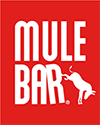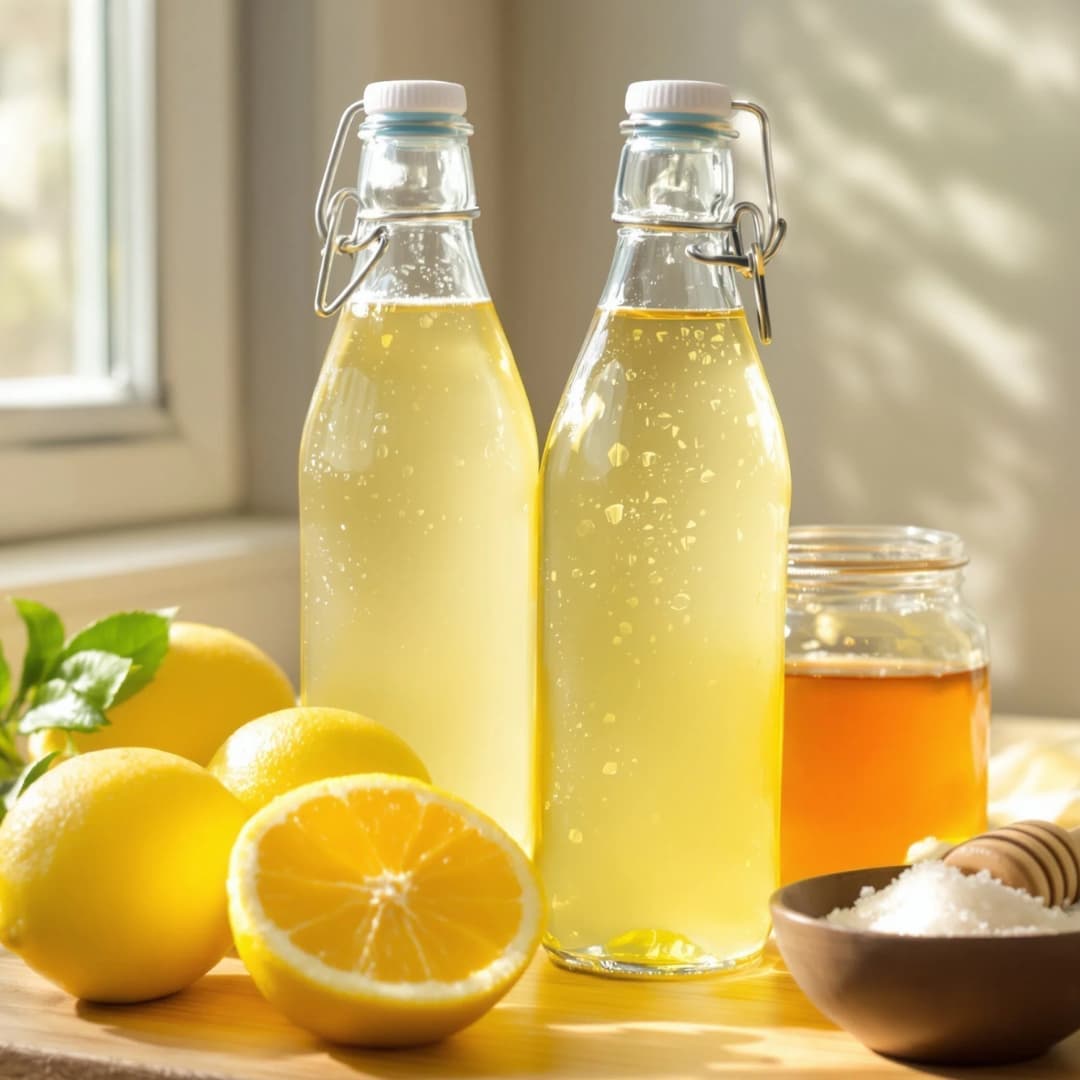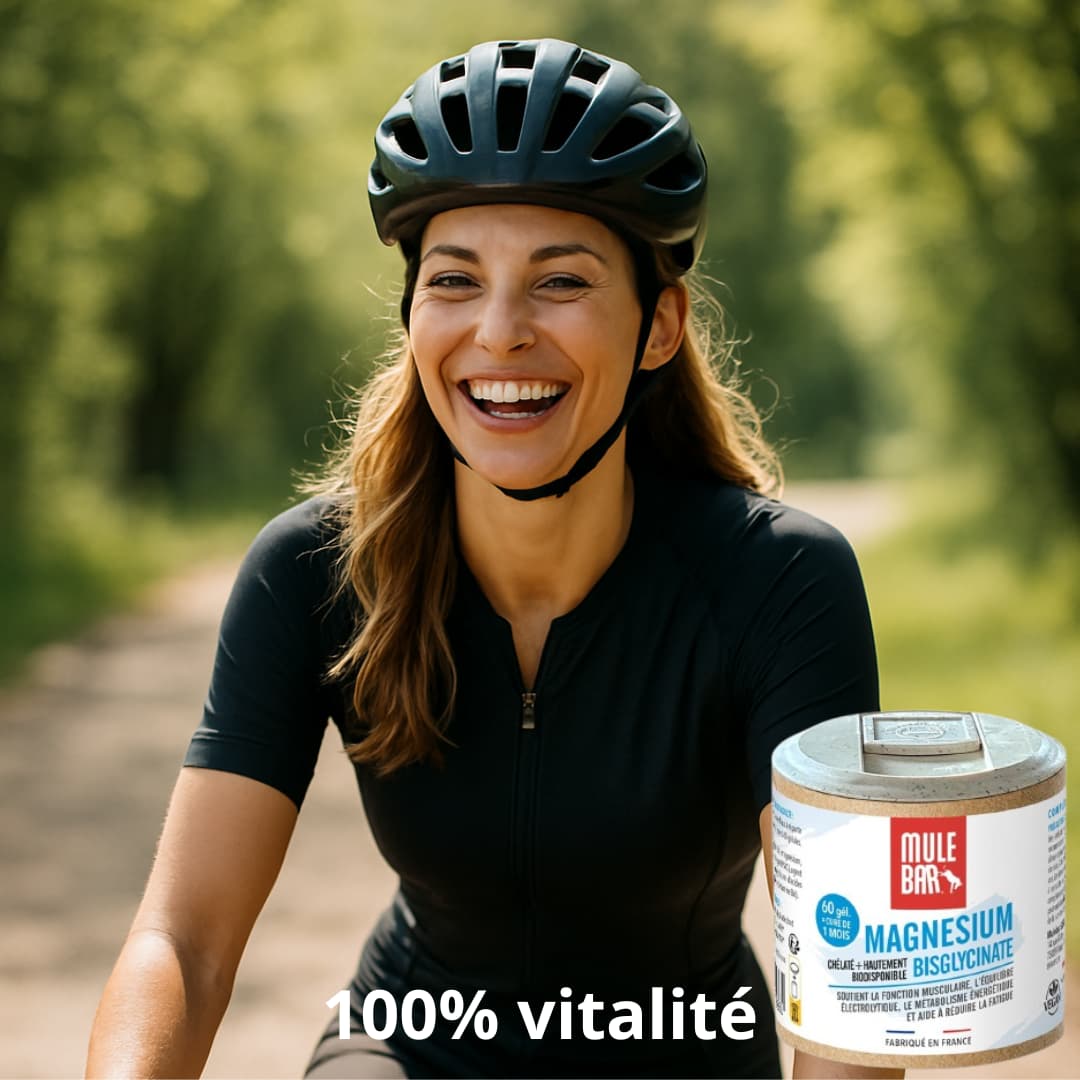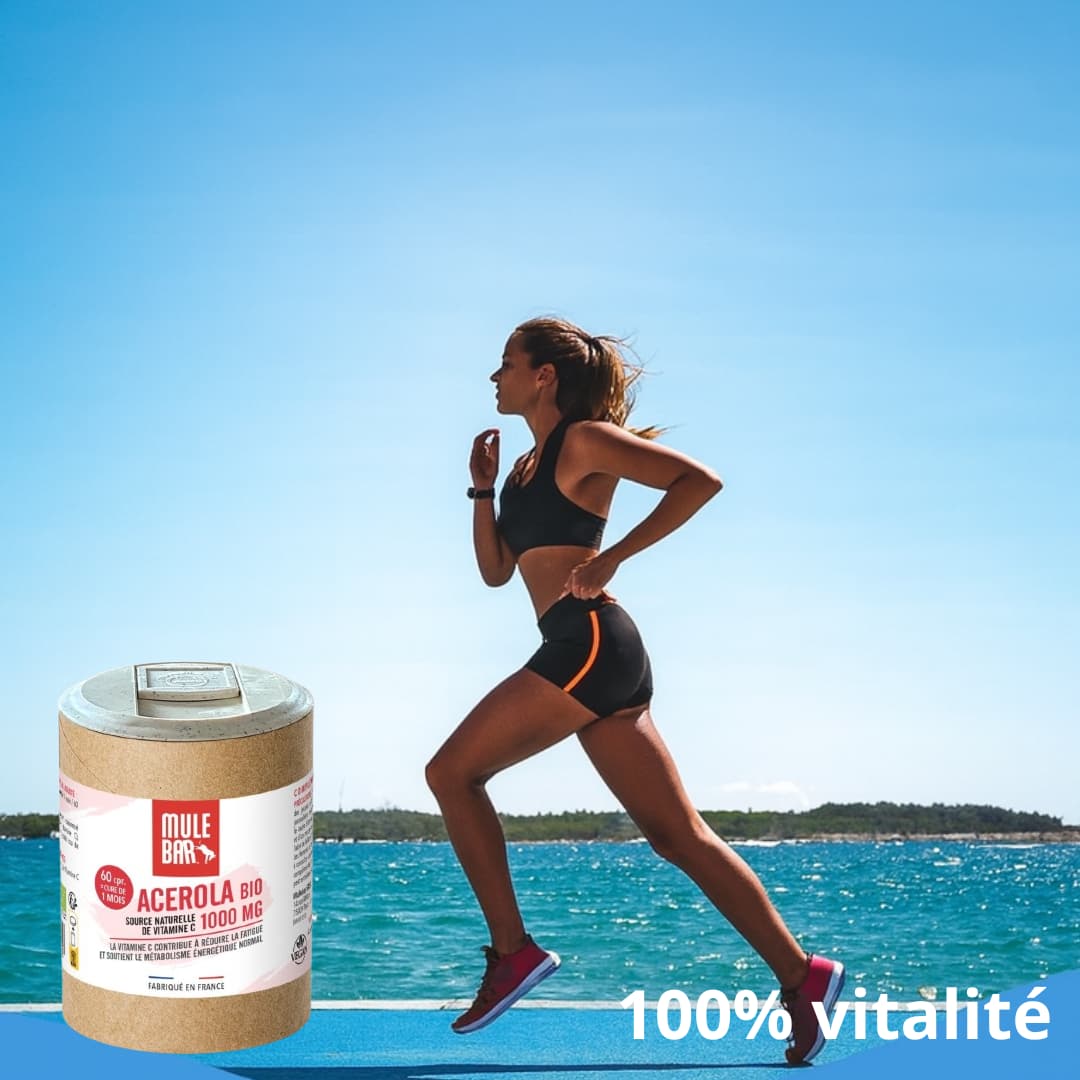For over 15 years, MULEBAR sport nutrition has been supporting athletes in their quest for natural performance. Learn in this guide how to prepare an effective and economical homemade isotonic drink, with simple ingredients that you probably have in your cupboards. We reveal the precise dosages, tips for customizing your energy drink according to your discipline, and all the secrets for perfect hydration during exercise.
Isotonic drinks and hydration during exercise
Properly hydrating your body is essential for any performance-minded athlete. Isotonic drinks offer a careful balance of electrolytes and carbohydrates, similar to our blood plasma, allowing for optimal absorption. Much more than flavored water, their carefully designed formula makes them true energy allies.

Why an isotonic drink helps hydration
Unlike pure water, a homemade isotonic drink is absorbed more efficiently thanks to its specific components. Sodium activates intestinal transport through the sodium-glucose system, thus accelerating the arrival of nutrients in the blood. This mechanism explains why athletes experience better hydration with less digestive discomfort.
Its composition perfectly rebalances water and mineral losses. During exercise, we lose between 500 and 2000mg of sodium per hour depending on the intensity. Without adequate intake, dehydration sets in, reducing blood volume and limiting muscle performance.
- Rapid Absorption : Sodium promotes the passage of water and carbohydrates through the intestines.
- Sustainable performance : Simultaneous intake of water and electrolytes prevents power dips.
- Guaranteed comfort : Adapted osmotic concentration prevents digestive problems.
The ideal temperature is between 10 and 15°C. This range optimizes absorption while providing a pleasant sensation of freshness. Too cold, the drink can cause cramps; too hot, it is less easily absorbed.
Simple recipe and key dosages
Our signature recipe for 500ml: 500ml of water, 20g of honey, a tablespoon of lemon juice and 1g of sea salt. This preparation provides approximately 17g of carbohydrates, 23.5mg of potassium and natural antioxidants.
Honey is particularly interesting due to its natural mix of glucose and fructose. Its enzymes aid digestion and its polyphenols protect against oxidative stress.
Adjust according to heat and intensity
Adjust your concentration according to the conditions. In hot weather, prioritize hydration by limiting carbohydrates to 30g/liter. Conversely, for prolonged exercise or in cold weather, you can increase to 70g/liter without disrupting absorption.
The rate of consumption is crucial: 350 to 500ml per hour, in small, regular sips. Don't wait until you feel thirsty, as this is a sign that dehydration has already begun.
Isotonic recipe and variables to control
Creating an effective isotonic drink requires understanding a few fundamental physiological principles. The goal is to achieve an osmolality of 270 to 330 mOsm/kg, which allows for perfect absorption while avoiding digestive problems. This value corresponds precisely to that of our body fluids, creating the desired isotonic effect.
The right percentages for hydration
The balance between sodium and potassium is essential for optimal hydration. Sodium controls fluid volume outside cells, while potassium acts internally. The right ratio facilitates fluid transfer and protects the integrity of cell membranes.
For one liter of drink, aim for these ideal proportions:
- 40 to 80g of carbohydrates (or 4-8%)
- 500 to 700mg of sodium
- 300mg minimum of potassium
These dosages promote optimal intestinal absorption while compensating for losses due to perspiration. However, avoid excesses that would unbalance your preparation.
Key takeaways
- Ideal carbohydrate concentration: 6% represents the best compromise between available energy and absorption speed for athletes.
- Minimum sodium threshold: Below 460mg/L, hydration becomes significantly less effective.
- Digestive limit: Beyond 8% carbohydrates, the risk of problems (nausea, bloating) increases significantly.
- Practical tip: Use lukewarm water (35°C max) to better dissolve the honey while preserving its enzymes and antioxidants.
Choosing the right water is essential: mineral-rich water will naturally provide calcium and magnesium , which are essential for proper muscle function. This natural solution avoids additives while improving the nutritional quality of your drink.
Optimized Honey-Lemon Recipe
For one liter of effective energy drink: mix 3 tablespoons of flower honey , the juice of one lemon and 1/4 teaspoon of salt in water. This recipe perfectly respects the natural glucose-fructose ratio of honey, allowing for optimal utilization of carbohydrates - up to 90g per hour for trained athletes.
Tip: The type of honey influences energy release. Acacia honey (GI 53) is ideal before exercise, while a higher glycemic index honey will be preferable during activity for an immediate energy boost.
Properly balanced sodium and potassium
Sodium losses vary considerably (500 to 2000 mg/hour). Signs such as white marks on clothing, early cramps, or unusual fatigue often indicate an electrolyte imbalance. Adjust your salt intake accordingly for optimal hydration.
To supplement your potassium intake, add 1/4 teaspoon of potassium chloride per liter . This addition becomes crucial during prolonged exercise or in high heat. Potassium prevents cramps and maintains optimal heart function—two key elements for endurance performance.
Isotonic recipe by type of effort
Each sport requires a tailored hydration and energy intake strategy. The intensity and duration of your workout, as well as the weather conditions, determine the perfect recipe for your isotonic drink. By personalizing your mix, you maximize its performance benefits while maintaining your digestive comfort.
Short outings and warm weather
For a trail cycling session lasting less than 2 hours in hot weather, opt for a homemade isotonic drink that's low in carbohydrates. A simple mix of 30g of sugar and a pinch of salt in 1L of water, possibly flavored with a light infusion, will do the trick perfectly. This formula prioritizes hydration over a massive energy boost.
Moderate carbohydrate content facilitates absorption in the stomach, which is especially important when your body is battling the heat. Less concentrated solutions are easier to digest during intense exercise, reducing digestive risks. This is a real asset during summer events, where heat management becomes crucial.
This comparison details the different types of drinks (hypotonic, isotonic, hypertonic), explains why pure water is not enough for exercise and gives all the keys to creating your ideal drink: electrolyte balance close to plasma, recommended intake of sodium , potassium , magnesium , presence of B vitamins and the right dose of sugars.
Long trail and bike outings
For efforts exceeding 2 hours, your body requires a continuous supply of energy . Combine 30-40g of maltodextrin with 30-70g of sugar per liter, adjusting according to the outside temperature. Maltodextrin provides gradual energy without altering the taste, perfect for long distances in trail running or cycling .
This ingenious blend activates multiple intestinal absorption pathways. Maltodextrin gradually converts to glucose for sustained energy , while sugar provides immediate support. This synergy allows you to maintain your effort without experiencing a dip in energy.
Diluted gel tip for hydration
A practical solution: dilute a tube of energy gel in 500ml of water . This instantly gives you a perfectly dosed homemade isotonic drink when refreshment stations only offer water. The concentration precisely meets your physiological needs.

This method combines simplicity and effectiveness. Since the gels are already balanced in carbohydrates and electrolytes , their dilution maintains these optimal proportions. Ideal if you normally use a well-tolerated brand of gels, thus guaranteeing assimilation without discomfort.
Varied isotonic recipe and optimal hydration
Regularly changing the flavors of your drinks helps prevent monotony during prolonged exercise . Our homemade recipes retain all the essential isotonic qualities while offering pleasant flavor variations. This diversity promotes more consistent hydration , which is crucial for performing at your best.

Natural flavor ideas
Maple syrup is an interesting alternative to honey , with a slightly different carbohydrate profile. For one liter of water, mix 2 tablespoons of maple syrup with one spoonful of sugar. Add the juice of half a lemon , 1/4 teaspoon of salt , and a pinch of baking soda to balance the acidity.
Orange juice provides natural vitamins and antioxidants. Prepare a mixture of half and half pure juice and water , with a spoonful of sugar and salt . This recipe takes advantage of the fruit's natural carbohydrates while maintaining an excellent isotonic balance.
In hot weather, opt for a formula richer in mineral salts. Use lime juice, 1/4 teaspoon of standard salt , and 1/4 teaspoon of potassium -enriched salt . Sugar is optional; the key is to effectively compensate for electrolyte losses.
Bicarbonate and acidity management
Baking soda is particularly useful for grape juice preparations. Prepare 700ml of water, 300ml of grape juice, 30g of maltodextrin and salt. A pinch of baking soda improves digestive comfort and prevents acidic discomfort.
Baking soda has two major benefits: it buffers fruit acidity and reduces muscle acidosis. But use it sparingly, a pinch per liter is plenty; anything more than that risks digestive upset.
This tip is ideal for athletes who are sensitive to acidic drinks. The bicarbonate transforms a potentially irritating preparation into a perfectly tolerated isotonic drink . Always test this version in training before using it in competition.
Isotonic drinks: successful and safe hydration
Creating an effective isotonic drink requires understanding a few key physiological principles. This basic knowledge will help you avoid common mistakes that impact performance or cause digestive issues.
Figured benchmarks and quick recipe
Our homemade energy recipe for one liter of water consists of: 3 tablespoons of flower honey (or 63g of carbohydrates), 1/4 teaspoon of salt (providing 575mg of sodium), and the juice of a whole lemon. This clever blend precisely respects the recommended osmolality while providing the essential minerals for exercise.
- Easy to prepare : This drink takes just 2 minutes to make. Use warm water to help dissolve the honey.
- Storage : Keep it in the refrigerator for a maximum of 24 hours, but for optimal effectiveness, consume it within 4 hours.
- Value for money : At only €0.30 per liter, this homemade alternative is much more economical than commercial drinks (€2 to €4 per liter).
You can adjust the proportions according to your specific needs. Athletes with sensitive digestive systems should reduce the honey to 2 tablespoons, while ultra-endurance athletes can go up to 4 tablespoons. Experiment with different concentrations during training to find your perfect balance.
| Ingredient | Quantity for 1L | Nutritional contribution | Physiological function |
| Flower honey | 3 tbsp (63g) | Various carbohydrates | Provides fast and prolonged energy |
| Sea salt | 1/4 tsp | 575mg sodium | Optimizes water absorption |
| Lemon juice | 1 whole lemon | Vitamin C, acidity | Antioxidant action and flavor enhancer |
| Mineral water | 1 liter | Calcium, Magnesium | Moisturizing base and source of minerals |
Drinking plan and digestive tolerance
The ideal osmolality is between 270 and 330 mOsm/kg for optimal intestinal absorption. Too rich a concentration slows digestion and can cause cramps, while excessive dilution reduces energy intake during exercise.
How to properly consume your homemade electrolytes :
- 200 to 300ml approximately 30 minutes before exercise for effective pre-hydration.
- During the activity, favor spaced sips rather than large quantities at once.
- Your stomach can only assimilate about 800ml per hour.
For recovery , drink 500 to 700ml within an hour of exercise to replenish your water and electrolyte reserves. A ratio of 1 part protein to 4 parts carbohydrates will also optimize muscle repair.
If you don't have time to prepare your own isotonic drink, we recommend our Mulebar sports drinks.
- Red fruit sports drink
- Citrus sports drink
- Red fruit hydration drink
- Citrus Hydration Drink

Also check out the comparative guide to isotonic sports drinks and the comparative guide to hydration drinks to see which brands have the best dosages on the market.




Leave a comment
This site is protected by hCaptcha and the hCaptcha Privacy Policy and Terms of Service apply.